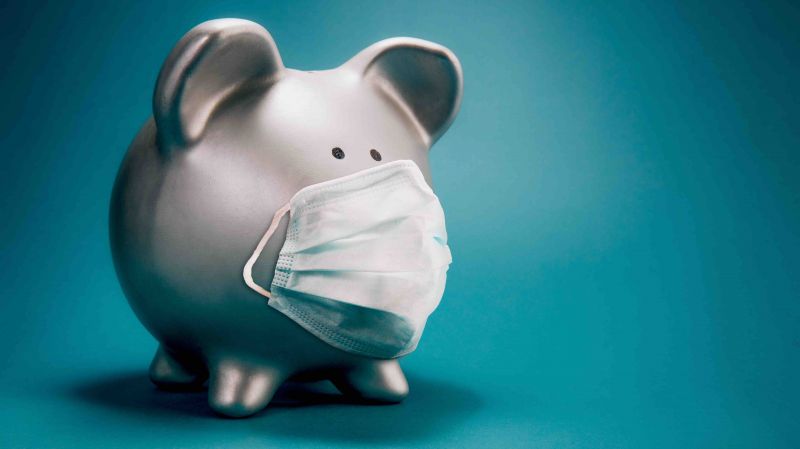Is ESG the Vaccine Investors Need?
Companies with strong environmental, social and governance metrics often do better in tough times. This time may be different

- Followers of sustainable investing say firms that place a higher priority on environmental, social and governance (ESG) performance have stronger bonds with stakeholders, which translates into higher shareholder value and stock-price resilience during economic shocks.
- Preliminary evidence shows that responsible investment equity funds outperformed their peers during the COVID-19 market sell-off.
- But stocks with strong ESG were less resilient during the second quarter of the pandemic.
The COVID-19 pandemic has been miserable for business across the board, buzz-sawing through corporate plans, industry assumptions and strategies. But it also accelerated trends rumbling in the economy’s background. The virtual workplace, for better or worse, is here to stay. And, if you believe a growing chorus of market analysts, so too is sustainable investing.
During COVID-19’s first wave, J.P. Morgan polled investors from 50 global institutions (representing US$13 trillion in assets under management) on how they expected the pandemic to affect sustainable investing. Some 55 per cent saw the pandemic as a positive catalyst for tackling climate change and similar high-impact risks in the next three years.
To prove this point, activity in sustainable investment funds—those that use environmental, social and governance performance (ESG) metrics—did not slow in the teeth of the pandemic storm. “If anything,” said one investment expert interviewed by The Financial Times, COVID-19 “is likely to enhance the appeal of ESG investing once the dust has settled.”
This is more impressive than it appears. History shows that during a crisis, investor and corporate interest focuses on short-term economic issues. Yet, with COVID-19, many firms are forgoing short-term profits to respond to societal needs. And the value of those firms is actually increasing.
The joy of ESG
What’s the appeal of ESG-based investing? Partly, it’s a belief that firms that prioritize ESG have higher social capital and trust, and thus stronger bonds with stakeholders. This, in turn, translates to higher shareholder value and stock-price resilience during economic shocks.
Some research backs this up. In the 2008-2009 financial crisis, firms with higher social capital (as measured by corporate social responsibility scores) enjoyed four to seven per cent higher returns. They experienced higher growth and sales per employee and were able to raise more debt.
Preliminary evidence from the COVID-19 period seemed promising as well. In the U.S., a Morningstar analysis of investment funds found that 70 per cent of the 206 responsible investment equity funds studied outperformed their peers in the first quarter of 2020. In Canada, 83 per cent of responsible investment funds outperformed their average asset class during the same period, according to Fundata.
Searching for resilience
So is it an open-and-shut case that ESG investing acts as an “equity vaccine”? Not so fast, say researchers from the University of Waterloo, Stern School of Business and Tilburg School of Economics and Management. They conducted an extensive analysis of U.S. stocks, taking into account industry affiliation and a full array of market-based variables. They wanted to find evidence that ESG—more than traditional financial statements and other measures of risk—drove COVID-period returns.
Their findings, presented to the Canadian Sustainable Finance Network Conference, organized by the Institute for Sustainable Finance at Smith School of Business, refuted the claim that ESG provided share-price resilience during the pandemic.
In the first quarter of 2020 (when the initial wave of the pandemic caused widespread disruption for businesses), ESG was an insignificant factor to explain stock market performance, the study found. Firms with higher ESG scores were no more protected from losses during the pandemic-induced sell-off than others, once industry affiliation and accounting- and market-based determinants of returns were considered.
In the second quarter, as the U.S. economy began to bounce back, stocks of ESG-heavy firms performed significantly worse than their less socially-responsible counterparts. They experienced a three per cent decrease in abnormal returns—even as the overall market experienced a significant recovery. (An “abnormal return”, also known as alpha, is the difference between the actual rate of return and the expected return.)
If social capital investments were no help at best (and a drag at worst) what did offer stock-price resilience during COVID-19? According to this study, traditional measures of liquidity and leverage gave firms the financial flexibility to ride out the storm. And, just as important, firms with healthy investments in innovation-related assets—among them research and development and intellectual property such as recommendation algorithms—outperformed during both the COVID-19 crisis and recovery periods.
As the researchers conclude: “Celebrations of ESG as an important resilience factor in times of crisis are, at best, premature.”
Before you consider jumping off the ESG bandwagon, stay put. Yes, the power of sustainable investing to protect against the worst of economic downturns is questionable. But this study says nothing about the longer-term shareholder value that comes from responsible corporate citizenship. And that’s the sweet spot of ESG investing. The evidence is growing that a firm’s environmental performance and social capital—the E and S in the ESG equation—are closely linked to increases in long-term value. If stakeholder capitalism has any hope of catching on, these metrics will attract ever-growing scrutiny. And that’s a good thing.